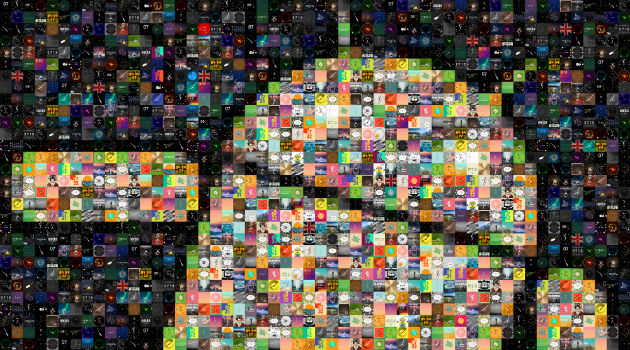Smartphone as our constant companion: what impact does a wearable gadget have on us? What use cases could we not even imagine? Today's material opens the veil of the unknown.

We do a lot of stupid things with our smartphones, be it millions of selfies or mindlessly following GPS directions driving the car down a bridge. But as much as I love joking about the mind-numbing influence of smartphones, it's not. Smartphones improve our lives, and this is not about birthday reminders from Google Calendar. Here are a few scenarios of how smartphones are changing the world for the better.
Security
A lonely night walk through a not very favorable part of the city is not as dangerous as it was ten years ago. All thanks to a tracking device that is always with you. For added protection, you can use personal protection apps like bSafe with additional features like 'Follow Me' to help your friends track your location in real time via GPS and automatic alerts if you don't reach a certain point by a specific time.

Earthquake alert
Your smartphone has a built-in MEMS (Micro-Electro-Mechanical Systems) accelerometer that reads movements and turns the card in the right direction. However, scientists have found that these sensitive sensors can accurately detect earthquakes of magnitude 5 points in the immediate vicinity of the epicenter. In other words, smartphones will soon be able to replace the usual seismometric systems.

An open window to the developing world
EyeNETRa owns NetraG, a phone accessory that, by linking to a mobile app, can accurately measure hyperopia, myopia, astigmatism, age-related visual impairment and interpupillary distance. According to the company, 2.4 billion people around the world require glasses but lack access to the necessary equipment for examinations or cannot afford expensive examinations. NetraG aims to make a difference.
Mobile Doctor
Apps like Doctor on Demand let you 'call' a qualified professional directly to your smartphone screen, even if you're huddled in your bedroom with a bowl of chicken soup. The convenience of a smartphone is not only beneficial to the patient: Harvard professor George Whitesides invented a paper chip that, when blood gets on it, creates a colored pattern that makes it possible to diagnose the presence of diseases, for example, HIV, malaria, tuberculosis, hepatitis. The chip visually displays the results obtained so that the doctor can diagnose with it.
Always at the right time in the right place
Smartphones can be found everywhere and this is a plus in terms of emergencies. Authorities can use cellular networks to alert the public to extreme natural events or child abductions (Amber Alert). Smartphones will also come in handy during natural disasters, as happened in 2011 during the earthquake in Japan, when smartphones were used to communicate (city telephone networks were unavailable) and coordinate search and rescue operations.

They change how our brains work
Scientists have found that smartphones actually change the way our brains work. Constant access to databases and search engines has redefined how memory works. Instead of remembering information , we now remember how to find that information. If this aspect is not to your liking, think about this: instead of clogging your brain with useless facts, now you clog it with information that leads to these facts, helping you to learn more information.
Help for sick / people with disabilities
Nobody likes to be sick, but it is much better to be sick in the age of smartphones. There are applications for any scenario: treating diseases, studying sign language, searching for suitable restaurants, hotels and attractions in a particular city. And for people who can't use their hands, there is the Sesame Enable device, which aims to 'connect' all users to the world.

Information for developing countries
Smartphones and tablets instead of notebooks sounds pompous, but this strategy is helping schools save money. How? For the cost of a few classic textbooks, a student can get the entire Internet with its dynamic information on a mobile phone screen. Unsurprisingly, emerging African schools are opting for high-tech and cheaper alternatives to standard printed teaching materials.
Save time
According to Harris Interactive research, the convenience of smartphones helps its users 'save' up to 22 days a year. Yes, everything is correct: checking email, reminders of meetings, going to the store, texting with friends and checking the weather in one place – all this means that you have almost a month more free time than you had, say, in the 90s. It should be noted that the time saving mode is not always productive, because you most likely spent those 22 days playing Clash of Clans.
Original article by Sarah Jacobsson Purewal
Elir: There are countless scenarios for working with a personal gadget, since there is a very wide range of applications that can perform certain tasks. Leave your interesting scripts in the comments.


